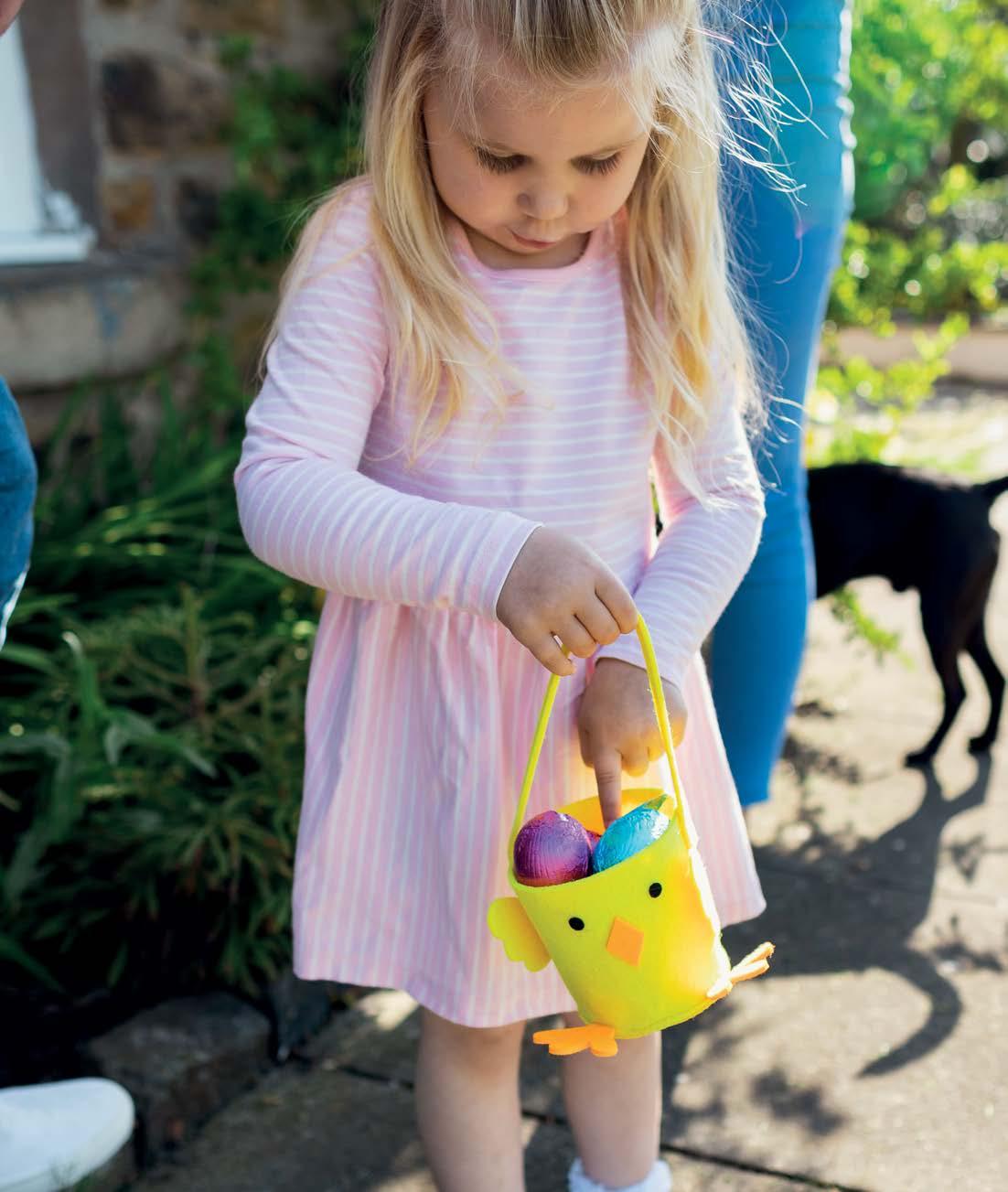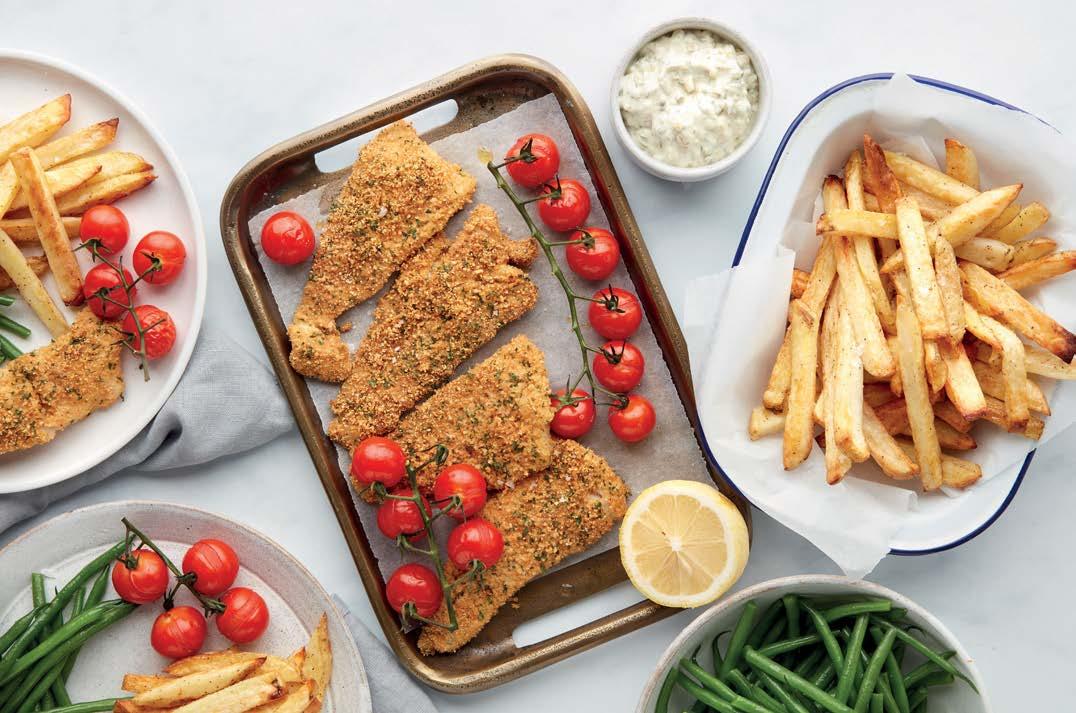
7 minute read
THE MIRACLE MENU



THE MIRACLE MENU Sidestep common colds and the flu with these superfoods, says nutritionist LOUISE PYNE




Getting sick is simply inevitable for children. All babies are born with an immature immune system and this defence system starts to build up slowly by battling a series of bacteria, viruses and other microorganisms. It’s perfectly normal for your child to experience around six episodes of minor illnesses per year – this include coughs, colds and ear infections and while there’s no quick x solution to sidestep sickness, there are plenty of steps that you can take to minimise the impact when illness does hit.
Most of us have heard the term ‘rainbow foods,’ (brightly-coloured fresh fruits and vegetables), but it’s not always easy to get our little ones to munch on more of the good stu – the secret is to sneak these goodies into our children’s diet. After all, what she doesn’t know won’t hurt her! And along with vibrant fresh produce, there are lots of other foods that help to keep the baddies out. Here’s a rundown of our favourite immunity-boosting foods and how to get more of them into your child’s diet.



SPINACH If your child’s recovering from an illness, lling her up on leafy greens packed with iron is a great way to revive agging energy levels. is mineral is needed to transport oxygen around her body and also needed for general growth and development. Top tip: Add a handful of spinach to a homemade banana and strawberry smoothie (blend the ingredients together with milk) and serve it in a coloured beaker with a straw so she won’t be put o by the colour.


YOGHURT Yoghurt is a pretty child-friendly food; and the good news is that this dairy delight also contains probiotics (good bacteria that helps to keep her digestive system healthy). A healthy gut is linked to increased immunity so it’s important to ll up on foods that help to nourish this body system. Top tip: Your child might turn her nose up at un avoured yoghurt but in order to minimise arti cial sugars, full-fat Greek yoghurt is best and it’s also high in nutrients like protein and calcium. Chop up some of her favourite fruit and a squeeze of honey or maple syrup for a naturally sweet treat that she’ll love.


GARLIC Garlic gets ve stars for its immunity powers. Each little clove contains a compound called allicin which is released when garlic is minced (and not when it’s chopped!). Studies show that allicin helps to increase levels of infection- ghting white blood cells, which can help to tackle bacteria and viruses. Top tip: Add garlic to recipes regularly. Use a base of onions, garlic, carrots and celery for dishes like spaghetti bolognese and shepherd’s pie for delicious avour that’s not too overpowering when cooked.





CARROTS is bright orange veggie is crammed with vitamin A, a nutrient that helps to supercharge numbers of protective white blood cells, and ensures that the respiratory tract stays healthy by preventing germs from entering her body. Top tip: Serve her lightly steamed carrot sticks with her favourite dip, or nely chop carrots and add them to stews and soups.




SALMON e good omega-3 fats found in oily sh such as salmon help to strengthen her immunity by enhancing the function of protective immune B cells, so it’s a good idea to make sure you o er her two portions of oily sh per week. Top tip: If your child isn’t a massive fan of sh, get creative. Cut a salmon llet into little chunks, dip them in breadcrumbs and then bake or shallow fry. Serve with mashed potato and steamed veg for a hearty meal. L


Sometimes, especially with less kid-friendly superfoods like salmon, you’ll need to get creative in how you include them in meals























DAILY DOSE




Set up a healthy sleep routine Sleep is one of the best ways to keep the immune system in tiptop condition and by the time your child reaches pre-school age she’ll need around 10 hours sleep. If your child’s resistant to bedtimes, playing lullabies, installing a soothing ceiling projector, or investing in a gro clock or night light may help.
Make sure she’s active Regular exercise increases the number of defence-boosting cells called natural killer cells, so make sure that daily exercise forms part of her lifestyle. Enrolling your bub into a sports club, dance or martial arts class is a good way to keep her moving and make sure you do lots of fun activities together – a game of tag in the park, swimming, bike rides and so on will ensure she gets enough exercise.










Be clean It sounds obvious but setting up good hygiene habits can minimise any stress on your little one’s immune system. Remind her to wash her hands before and after meals, after a trip to the park and when playing with pets so that it eventually becomes a habit for her. For more information, visit childnet.com and nspcc.org.uk.











